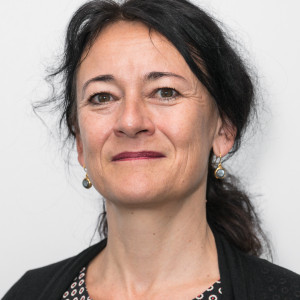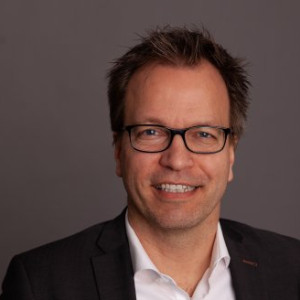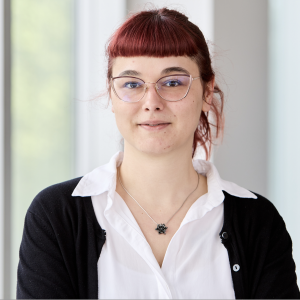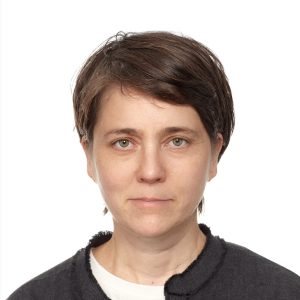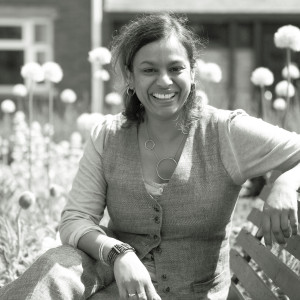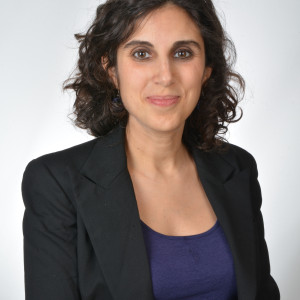Key Questions
For what underlying structural reasons did migration research have such a success these last decades?
Why is migration so often presented in politics, in public or in the media as a direct threat to sovereignty and national identity and welfare states?
How could we study migration without turning it into a problem?
How come we develop theories in what we would call the migration container? Assimilation or integration theory? Are migrants à priori and per se so different that we need a special field and special theories for them, beyond what we have in terms of theories and concepts in social sciences?
How are the interpretations we do have on migration related to our position of power? Why are most researchers white and European? Why is it only recently that migration scholar included ‘race’ or in general, post-colonial theories and concepts into their studies?
The aim of this standing committee is to push forward a reflexive (and self-reflexive) perspective within migration studies. Given the growth, relevance and responsibility of migration studies, we strive to promote reflexivity in our research and to investigate on how the field of migration studies has emerged. Being reflexive in these two senses involves investigating how knowledge on migration is produced, circulated and utilized – both by us as researchers as well by other actors in the field.
This endeavour tackles the embeddedness of the field of migration studies in wider societal and power relations and the risk to reproduce hegemonic structures. Hence, studying knowledge production cannot be separated from studying eurocentrism, racism, situated positions of researchers, or contested public debates on “truth” or “fake-news”. Studying knowledge circulation requires examining patterns of knowledge utilization in policy, politics, or state institutions. Equally important is to analyse the transfer of migration-related knowledge produced by other actors, like mass media, so-called migrants themselves, civil society actors, international organizations, or social science disciplines.
For migration studies as field of research, becoming reflexive changes its positionality. The reflexive approach that we pursue emphasizes the boundedness of knowledge about migration to specific epistemological, methodological and political modes of knowledge production. The awareness that modes of conceiving and researching migration are inevitably historical and theoretically contingent shall feed back into the ways of how knowledge is produced. Consequently, the objectives of this SC are to
- promote reflexivity amongst migration scholars
- provide a platform for research on knowledge production, circulation and utilization in migration studies
- address the risk of migration studies of reproducing hegemonic structures and problem definitions
- develop alternatives in theory, empirical research and science-society dialogues.
Coordinators and governance structure
The standing committee is managed by a team of two directors and a coordinator, as well as a governing board. Within the governing board, one position is assigned to a PhD representative.
Names and institutional affiliations of (key) members
Institutional leadership of the standing committee is at IMIS, Osnabrück University, Germany.
Directors
Coordinator
contact:
PhD representative
Further members of the governing board
Apply for Reflex_studies
Please log on first to visit the application form
Subscribe to the Reflex_studies newsletter
The newsletter of the Standing Committee is sent out about four times per year and provides you with information on events, people, jobs and other interesting stuff. You can subscribe here - you do not have to be member of the Standing Committee to subscribe to the newsletter.
Recent Newsletter: Issue June 2025
Newsletter Archive: Issue June 2024
Agenda of activities
In the upcoming years, we will particularly focus on:
- Histories, theories and methodologies of migration studies
- Migration knowledge production by actors outside academia
- Reflection on practices of data production in migration studies and development of new and different forms of data production
Objectives
Based on these activities and the work of the colleagues involved, the Standing Committee intends
- to establish ‘Reflexivities in Migration Studies’ as part of the curriculum of the history and theory of the discipline; to contribute to the theory of migration studies; to reflect on the role of commissioned research for the epistemologies, history and theories of migration studies; to de-center and re-position European migration research within global contexts;
- to investigate forms of ‘migranticization’ in terms of knowledge production, utilization and circulation by different actors such as state institutions, activists, policy makers and researchers, social scientist experts, and the role of mass (and social) media as distributors of this knowledge;
- to enhance competences in reflexivity regarding data production (both qualitative and quantitative approaches) relating to the identified (potential) problems
Here you find a glimpse of our work, summarizing our kick-off meeting in January 2020.
Recent and Future Activities
Recent workshops and conferences:
- Conference on "De-centring migration in migration studies", 14-15 September 2023. More information can be found below.
- Webinar on "Reflexive approaches to methodology and research methods", organized in cooperation with the Standing Committee "Methodological Approaches and Tools in Migration Research", 30 January 2023. See below for a description of the scope of this event and for its program.
-
Authors' workshop on "Reflexivities in Migration Studies. Pitfalls and Alternatives", 30 September-1 October 2021, Osnabück University.
-
RN35 Midterm Conference Towards Reflexivity in Migration Studies. Knowledge Production in Times of Contested Politics and Post-Colonial Dynamics, 21-22 January 2021 at Technical University Berlin, Germany. The conference will take place as an online event. Detailed information and program are available here.
-
Virtual Conference The Moral Economies of Knowledge Production on Migration, 2-4 December 2020 at IMIS, Osnabrück University. For information regarding program and registration procedure see the conference's website. Here, you find the initial CfP.
- Kickoff-Workshop in Neuchâtel, Switzerland, in 2020: see here for the program and a summary of our work
Future workshops and conferences:
More is soon to come!
Panels and workshops at IMISCOE’s Annual Conferences:
- 2025 @ IMISCOE's Hybrid Conference in paris, France: roundtable on "Decentring and/or Reflexivity – a critical conversation", organised together with the Global (De)Centre and chaired by Alka Kumar (The Global (De)Centre) and the SC's co-director Janine Dahinden ; roundtable on "Towards Reflexivity in the Study of Mobility and Diversity: Theories, Positionality, and the Political Economy of Knowledge Production", organised by the SC's governing board members Iva Dodevska and Maissam Nimer
- 2024 @ IMISCOE's Hybrid Conference in Lisbon, Portugal: workshop on "Decentering migration studies" (Sessions #106 and #132); workshop on "Mainstreaming reflexivity: Potentials, challenges and pitfalls" (Thu July 4, 10:50–12:20, Session #194); book launch "Reflexivities in Migration Studies" (Session #63)
- 2023 @ IMISCOE's Hybrid Conference in Warsaw, Poland: session on "Reflexive practices that unsettle bordering in migration (studies)" and on "The practice of reflexivities in research"
- 2022 @ IMISCOE's Hybrid Conference in Oslo, Norway: sessions on "Positionality and power of migration researchers: Searching for reflexive ways of knowledge production".
- 2021 @ IMISCOE's Online Conference: Session on challenges in "Reflexivities in Migration Studies. Pitfalls and Alternatives", taking place on Friday, 9 July, 8-11:15ampm (sessions #185 & 212). Please see the panel's description here.
- 2020 @ IMISCOE's Online Conference: Roundtable Discussion on challenges in "Reflexive Migration Studies", taking place on Wednesday, 1 July, 2-3:30pm (session no 12). Please see the panel's description here.
News
Out now: publication on "Reflexivities and Knowledge Production in Migration Studies"
We are delighted to announce the publication of the book Reflexivities and Knowledge Production in Migration Studies. Pitfalls and Alternatives. It is edited by Prof. Dr. Janine Dahinden and Prof. Dr. Andreas Pott , co-directors of the Standing Committee "Reflexivities in Migration Studies", and is published with Springer. It is fully open access and available here.
This edited volume provides a comprehensive perspective on reflexive migration studies and discusses a wide range of topics for consideration when developing reflexivity in research, and it also identifies alternatives for problematic aspects of knowledge production in migration studies.
********
In preparation: blog series on "Visions and narratives in Migration Studies"!
As migration scholars, we analyse, problematize and critique discourses, narratives and imaginaries about migration, as produced by states, civil society, migrants and other actors. But when it comes to our own imaginaries and visions as researchers, which implicitly shape our research decision-making, we seem to be far more cautious. We rarely reflect on and render explicit these implicit biases and normative assumptions, and even more rarely do we dare to come up with our own narratives and visions for the social realities we study. Some might argue that this is not our job. However, it is increasingly accepted in migration studies that it is impossible to do (migration) research from a non-normative standpoint, “a view from nowhere” – all knowledge production is situated and our own normative assumptions are part of this situatedness. Thus, our work is inevitably shaped by visions and ideas, rooted in belief systems, social norms, lived experience, and the places and structures we are born into, among other factors. For instance, as researchers we often have an idea of what "migration" and "society" are and ought to be, but do not make it explicit. Yet, these notions are constantly re/produced in and by migration studies, among other public fora. With this call, we invite you to reflect and make explicit the narratives and visions that are always there, in our research, but hardly ever spelled out.
This blog series invites migration scholars to reflect upon, engage with and develop new or alternative visions and narratives. Ideally, blog posts begin with a reflection on how the author’s own implicit normative assumptions structure their research, and end with the author’s vision of what migration studies should do and, more broadly, how society (of/with migration) should look like.
You find detailed information, including a more extensive description of the aims, scope and content of the blog series, here.
We are currently reviewing the proposals for contributions sent to us. Stay tuned for news and updates!
********
Just started: Reflexivities PhD Sessions Vol. VI (Fall 2025)!
Organized by PhD members of the IMISCOE Standing Committee "Reflexivities in Migration Studies", these sessions are designed to be a collaborative platform. Here, early career researchers can present their work, exchange feedback, debate methodological and theoretical challenges, and expand their networks with peers interested in reflexive migration research. This is a supportive environment for young scholars eager to explore alternative research approaches, mindful of the power dynamics in knowledge production about migration and striving to de-nationalize and de-migranticize studies of mobility and diversity. We warmly invite PhDs and early career researchers contributing to Reflexivities in Migration Studies to express their interest in presenting, discussing, or participating in other capacities in our online sessions.
You find all and further information, including a tentative schedule, here.
For further inquiries and updates, feel free to contact
Marina Lazetic
(
********
For further news you can also browse our newsletter archive:
Recently finished: Reflexivities PhD Sessions Vol. V (Spring & Summer 2025)
Organized by PhD members of the IMISCOE Standing Committee "Reflexivities in Migration Studies", these sessions are designed to be a collaborative platform. Here, early career researchers can present their work, exchange feedback, debate methodological and theoretical challenges, and expand their networks with peers interested in reflexive migration research. This is a supportive environment for young scholars eager to explore alternative research approaches, mindful of the power dynamics in knowledge production about migration and striving to de-nationalize and de-migranticize studies of mobility and diversity.
We warmly invite PhDs and early career researchers contributing to Reflexivities in Migration Studies to express their interest in presenting, discussing, or participating in other capacities in our online sessions.
Session Schedule: We will be holding sessions once a month on Thursdays, from 2-4 pm (CET) The specific dates are:
- 03.04.2025
- 15.05.2025
- 05.06.2025
- 10.07.2025
Registration Options:
Presenter:
- 15-minute presentations in a format of your choice.
- Topics can include research pieces, dissertation drafts, draft articles, methodological dilemmas, etc.
- Initial abstract submission (max 200 words) is required for thematic organization. Abstracts can be revised later; early drafts/ideas are encouraged.
- Priority will be given to presentations with a reflexive research approach in case of high interest.
Discussant:
- Provide critical, respectful, and constructive feedback on a fellow presenter's work.
- 10 minutes for feedback during the session, with the option to provide written feedback.
- Your role as a discussant is crucial for mutual growth and development.
Observer:
- Join the sessions as an observer, with the hope that you'll engage through questions and comments.
Registration will add you to our mailing list for session dates and links. Membership in SC Reflexivities or IMISCOE is not required for participation. All are welcome to present and/or be a discussant.
Registration Deadline: 31.03.2025. Please register using this form. For further inquiries and updates, feel free to contact Paul (Paul.Schreiber[at]ipu-berlin.de). We look forward to a fruitful exchange of ideas and insights!
Going on: Online Writing Retreat on Reflexivities in Migration Studies
Are you working on a project in the field of Migration Studies and seeking a supportive and collaborative space to boost your writing productivity? Join the online writing retreat hosted by the Standing Committee "Reflexivities in Migration Studies". The online writing retreat offers a unique opportunity for researchers, scholars, and students to come together and engage in focused writing sessions.
Key Features:
-
24/7 Online Space: We've set up a dedicated online space that's open around the clock, allowing you to dive into your writing whenever inspiration strikes or your schedule permits. This ensures that you have continuous access to the retreat's resources and can remain in touch with the community at all times.
-
Weekly Online Sessions: To ensure focused writing times, we will continue to meet for two 2-hour open online sessions, allowing participants from around the world to conveniently join and contribute (Our current session times are: Thursdays, 14-16:00 CET and Friday, 13-15:00 CET).
-
Once a month Sessions: Once a month we will host extended inputs focusing on topics such as writing support, tools, and materials (either before or after the 2-hour session).
-
Resource Sharing: An exclusive online material sharing platform has been set up specifically for the retreat. Here, participants can easily access a variety of writing materials and share pertinent documents with each other, fostering a collaborative and resource-rich environment.
How to Participate:
To be a part of the Online Writing Retreat, simply contact Paul and Orsolya: Paul (Paul.Schreiber[at]ipu-berlin.de) or Orsolya (Orsolya.Polyacsko[at]uni-corvinus.hu).
Published in 2022: blog series on Reflexive Migration Studies
Organised by our co-director Janine Dahinden , the contributions in this blog address Reflexive Migration Studies and critically discuss its development over the past two decades. The blog series is a collaboration between the Standing Committee and the nccr – on the move.
Contributions published so far:
Twenty Years of ‘Reflexive’ Migration Studies: Introduction to the Blog Series
Migration and Methodological Amnesia
Why Mobility Matters to Social Policy
Academic Engagement for Refugees’ Inclusion Beyond Good Intentions
A Reflexive Perspective on Privileged Migration Studies. What’s the Point?
Immigrant Researching versus Immigration Research
The Complicity of Culturalist Knowledge Production
What’s Sex Got to Do With It? Migration Studies Meets Sexualities
From Objects to Subjects: Expanding Reflexivity in Migration Studies
On-site event in 2023: Conference "Migration Studies and Social Theory: Problematizing Ontologies, De-Centering Migration"
Increased reflexivity in migration research (e.g. in regard to the construction of social categories like ‘migrant’, ‘refugee’ or ‘migration background’) has changed the focus and identity of migration studies. Since migration-related differences are no longer seen as ‘natural’, it seems less self-evident and legitimate to treat migration or migrants as an exception to ‘normal sedentary life’. Thus, migration and migration studies are de-centered. Relativizing and complexifying difference draws attention to the ordinariness of migrations and migrants in many realms of social life. In consequence, migration studies cease to differ from other fields of social research. How can de-centering transform the ‘epistemic object’ of migration studies in a manner that pushes migration studies forward, i.e. out of its sociological niche in order to mainstream ‘the migration question’? How can we both de-migranticize migration studies and migranticize social theory?
Following this line of thinking, this conference revisits the question of what migration studies can and should achieve after the reflexive turn. It aims at bringing together research perspectives that do not marginalise mobile, legally excluded, and symbolically othered populations but ask for the role they – and the research on them – play in the reproduction and/or contestation of social order(s). We aim to bring together and discuss conceptual foci and research results that contribute to a more comprehensive understanding of society of which migration and mobility are integral. As we take stock of how the reflexive turn has transformed the ways ‘migration’ is researched, we hope to open a way towards novel theory-making beyond groupism and migrant exceptionalism. We are especially interested in whether and how we can build theory by bringing reflexive migration research in dialogue with wider social theories. Therefore, theoretical and conceptual contributions, especially in their connection with empirical research (design), are especially encouraged. We welcome contributions that address the following and related questions:
-
How can we approach migration-related phenomena from the vantage point of more general social theories?
-
What kind of theoretical or methodological innovations did the reflexive turn stimulate or should stimulate in the future?
-
How do these depart from both mainstream ‘Migration Studies’ and more general social research to produce knowledge that neither exceptionalises nor invisibilises ‘migrants’ and human mobility?
-
How can the circulation of concepts, thoughts and approaches between social theory and migration studies lead to theoretical innovation?
-
Which ontologies inform our reflexive critiques? How do they relate to each other?
-
What is the relationship of reflexive migration scholarship to the ‘critical lenses’ on society? What does reflexivity add to critical research, and how can the two be distinguished?
Format: We aim for a conference where brief presentations will be followed by in-depth discussions. To facilitate fruitful exchange, the distribution of short papers (3-5 pages) in advance of the conference is strongly encouraged.
The conference took place on 14-15 September 2023 at the University of Tübingen, Germany.
Organizers: Iva Dodevska (Université Paul-Valéry Montpellier & Charles University), Stefan Manser-Egli (University of Neuchâtel), Boris Nieswand (University of Tübingen), Anja Weiß (University of Duisburg-Essen)
The program of the conference is available pdf here(430 KB) .
Online event in 2023: Online workskop “Integrating Reflexivities into Survey Research”
organised by the IMISCOE Standing Committees Reflexivities in Migration Studies and Methodological Approaches and Tools in Migration Research (Meth@Mig)
On 30 January 2023, the online workshop on "Integrating Reflexivities into Survey Research" was carried out with two keynote speakers: Jessica Hagen-Zanker, ODI and Laura Morales, Centre for European Studies and Comparative Politics, Sciences Po and the following contributions:
- A mixed methods approach to measuring naturalization preferences - Franziska Maier (University of Stuttgart)
- Using national household surveys to measure the reproductive health of displaced populations: the case of Iraq - Rossanna Le Voir (London School of Economics and Political Science)
- Decolonisation in the quantitative methods classroom - Rima Saini (Middlesex University London)
- Mapping quali-quantification pathways from open interview to closed survey – the case of the Migration-Mobility Continuum - Kesi Mahendran (Open University) and Nicola Magnusson (Open University)
-
From movers to migrants: impact of the end of free movement on EU citizens in the UK - Mariña Fernandez Reino (University of Oxford) & Madeleine Sumption (the Migration Observatory at the University of Oxford)
This workshop aimed to facilitate discussions across the qualitative/quantitative divide. As migration scholars, we often rely on survey research, be it as researchers collecting primary data or working with existing surveys conducting secondary analysis. When conducting original surveys there is an opportunity to think reflexively about the consequences of the categories (including official categories) we are using. When engaging in secondary analysis migration scholars must rely on the existing categories of survey-based work. However, there are often opportunities to be creative and transformative within the secondary analysis. Survey research, as any other type of research, is an art of itself. It requires pragmatism, expertise and consideration of a series of issues that arise at the various stages of survey design, implementation and data analysis. This workshop created a space for reflexive discussion about survey research. It aims to identify and understand the challenges and opportunities of creating reflexive approaches to survey research in migration studies.
The discussion was moderated by Justyna Salamońska (Kozmiński University) & Marta Kindler (University of Warsaw).
Online event in 2022: webinar session "Racism at the Border"
On 29 April 2022 we had our anti-racism webinar which actively engaged with questions of racism at the borders of Europe with Kamila Fiałkowska (Centre of Migration Research, University of Warsaw) and Katarzyna Czarnota (Adam Mickiewicz University, Poznań): Racism at the border.
At Poland’s Eastern border we witness since February 2022 two separate processes. On the southern part of this border, with Ukraine, people fleeing the war can enter practically without restrictions, are provided with humanitarian aid, and received with great solidarity. In parallel on the northern part of the border, other people fleeing military conflict, war and other atrocities, face “fortress Europe” in its worst version, with a “no go” zone, a wall being built, and people after entering Poland are unable to claim asylum. Those people are not being provided humanitarian aid and forced by border guards to re-enter again Belarus. The source of this double-standard border regime in Poland, with a clear preference for “whiteness” and “Christianity”, has its origin in the current government stand on the so-called “refugee crisis” from 2015 and a politically mobilised Islamophobia. This webinar brings together activists and academics to discuss within IMISCOE the criminalisation of non-European migrants as well as criminalisation of humanitarian aid. We aim to consider the role of academia, use of language, categories of analysis and critically the use of the “state of emergency” as a tool for racism and social divisions.
Kamila Fiałkowska is a researcher at the Centre of Migration Research, University of Warsaw. Her research focuses on migration from Poland, inequalities, gender, religion and national and ethnic identities of migrants from Poland. Since the border and humanitarian crisis on the Polish-Belarussian border she has been involved in the work of the research collective, Researchers at the Border.
Katarzyna Czarnota is a sociologist and PhD candidate at the Adam Mickiewicz University (UAM). In her research she uses critical action research, concentrating on methods of connecting theory and practice and preparation of models of knowledge production based on the questioning of current role divisions. She conducted research in Jordan, Greece, Turkey and the so called ‘Balkan Trail’. In recent years she conducted interdisciplinary research projects around the so called “refugee crisis”, housing, gentrification, neorealism, violence against people who have been refugees before and migration. She works at the Helsinki Foundation for Human Rights and is a member of the NGO Coalition “Grupa Granica”.
The discussion was moderated by the Standing Committee's board member Marta Kindler, WSNSiR and CMR University of Warsaw. About 55 people participated in the webinar.
A report on the event will be published soon here on our website.

